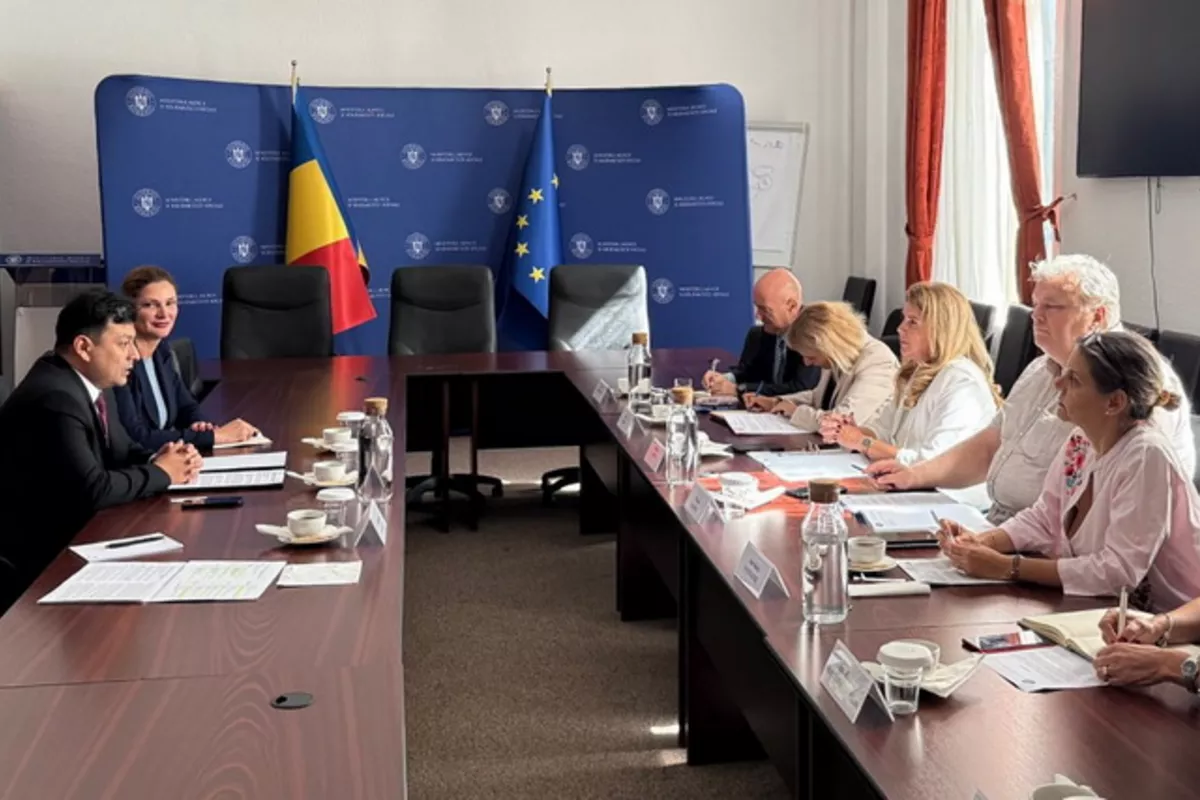
photo: UzDaily.uz
Diplomats from the Embassy of Uzbekistan have recently undertaken a productive working visit to Bucharest, engaging in high-level talks aimed at deepening cooperation between Uzbekistan and Romania.
During the visit, Amirsayid Agzamkhodzhaev, Uzbekistan’s Ambassador to Poland, held a series of meetings with prominent Romanian officials, including Ana Cinka, Secretary of State at the Ministry of Foreign Affairs; Gabriel-Bogdan Steco, Secretary of State at the Ministry of Economy, Digitalization, Entrepreneurship, and Tourism; Horatiu-Lucian Cosma, Secretary of State at the Ministry of Transport and Infrastructure; Daniela David, Secretary of State at the Ministry of Labor, Family, Youth, and Social Solidarity; Titus Corlatean, Chair of the Senate Committee on Foreign Affairs; Hajdu Gabor, Chair of the Chamber of Deputies Committee on Foreign Policy; Nushea Choman, Director of the Main Department for International Cooperation at the Ministry of Internal Affairs; and Catalin Dan, Director of the International Cooperation Department at the Chamber of Commerce and Industry, The Caspian Post reports per Uzbek media.
Uzbekistan’s Honorary Consul in Romania, Ramona Menescu, played a key role in supporting the delegation, actively participating in all meetings and facilitating dialogue.
Romanian counterparts praised the extensive reforms being implemented in Uzbekistan as part of its ongoing economic modernization and expressed strong commitment to support further progress. Bucharest reaffirmed its recognition of Tashkent as a crucial partner in Central Asia and highlighted its interest in enhancing mutually beneficial cooperation.
“Romania was among the first countries to recognize Uzbekistan’s independence. Our two nations have no political disagreements, which we highly appreciate, and our positions align closely on many international and regional issues,” stated Ana Cinka, Secretary of State at Romania’s Ministry of Foreign Affairs.
The meetings underscored a positive trajectory in bilateral relations, with discussions focusing on expanding cooperation in political, trade and economic, parliamentary, transport and logistics, migration, and cultural-humanitarian fields.
Share on social media